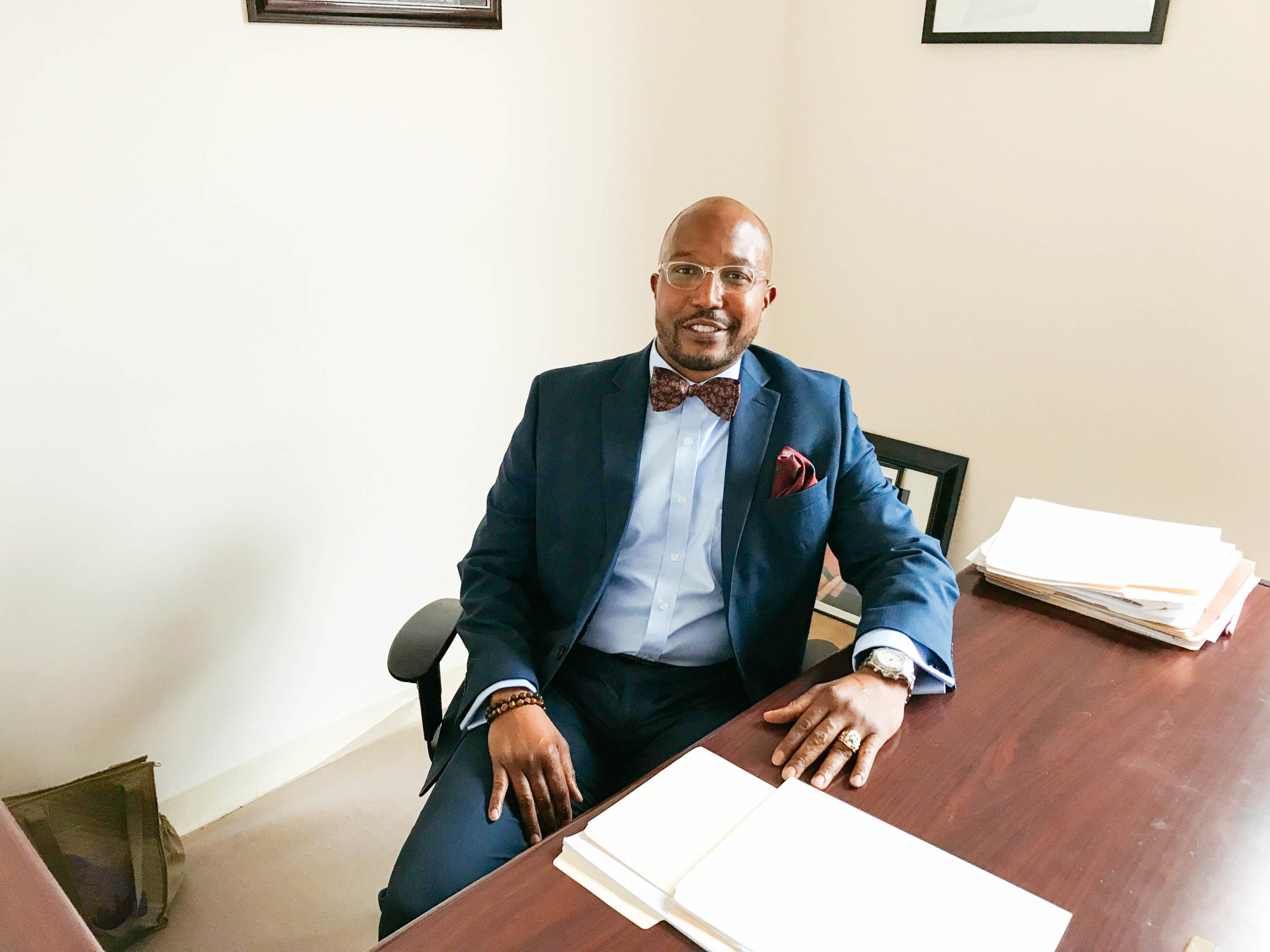
As the son of Puerto Rican parents growing up in the El Barrio section of Harlem, New York, Dakibu Muléy learned about the realities of life and the importance of education in an ethnically, socioeconomically diverse city. Now, he hopes to apply these values from his childhood to improve the lives of New Haven’s most vulnerable citizens.
Muléy is now in his third week as City Hall’s new community services administrator — a position to which Mayor Toni Harp appointed him after he worked as a postdoctoral fellow in the mayor’s office for six months. His department oversees the city’s services for the homeless, the hungry and the elderly. Six direct employees work under Muléy.
“I’m trying to create a culture of learning and that of execution,” said Muléy, who is in his 40s. “There’s a lot of similarities in the programs, so it’s important for me to understand how we might be able to be more effective and more fiscally conscious of the resources that we have.”
Before coming to City Hall, Muléy served in the state’s Department of Children and Families as the program director of Careline Operations, a phone service for reporting child abuse or neglect. Muléy also holds a position on the board of the Citywide Youth Coalition, which provides support to young New Haven residents. And he teaches in the sociology and anthropology department at Manhattanville College in New York.
The city’s community services administrator, a cabinet-level position, is appointed by the mayor and requires approval from the Board of Alders, which Muléy received by unanimous vote on Feb. 26.
Since he started last month, Muléy has focused on meeting with City Hall employees, strategic community partners and constituents. He believes his “humble beginnings” have helped him connect to and understand the needs of New Haven residents.
“Muléy has extensive experience at the state Department of Children and Families, is well-educated and well-qualified, and completed a post-doctorate fellowship in New Haven,” city spokesman Laurence Grotheer said in an email to the News. “Those who are acquainted with him from his time as a post-doctorate fellow are pleased and look forward to seeing him again.”
After earning a master’s degree from Southern Connecticut State University and a doctorate in business administration from the University of Phoenix, Muléy worked in the mayor’s office on several social services project, which includes a project that focuses on preventing intimate-partner violence.
Harp praised Muléy’s previous experience in Connecticut government and at City Hall during her weekly “Mayor Monday” interview on WNHH Community Radio on Feb. 5.
“He … was very helpful in coming up with ways to improve administration and management, and he did it really on his own,” Harp said in the interview. “Just based upon the work he did for us during his postdoctoral fellowship at City Hall, I thought he would be a great fit.”
Muléy replaces Martha Okafor, who stepped down in January. According to Grotheer, Okafor’s most prominent legacy at City Hall was her introduction of the Law Enforcement Assisted Diversion program.
This program aims to improve access to substance abuse resources and reform the criminal justice system. The initiative now operates in 17 cities and counties nationwide. In Seattle, where the program was piloted, participants were 58 percent less likely to be arrested after enrolling in the program, according to the Law Enforcement Assisted Diversion National Support Bureau.
Muléy attended a conference in Washington, D.C. last week to discuss the implementation of the Law Enforcement Assisted Diversion program with 20 other state agencies and municipalities.
He said it was reassuring to see that there are “other cities battling the same issue” as New Haven and that he was not afraid to “shamelessly borrow” innovations from other cities as long as they fit the specific needs of New Haven’s residents.
Along with enhancing this program, Muléy said he hopes to improve city services for the elderly in order to facilitate their access to shopping, housing and food, as well as to “provide opportunities to get them out of the house.”
According to Muléy, the opioid epidemic in New Haven has been exacerbated because of the number of people who have come to New Haven specifically to gain access to social services in a city where they are abundant.
Muléy worked for the Connecticut Department of Children and Families for 23 years.
Nathalie Bussemaker | nathalie.bussemaker@yale.edu
Interested in getting more news about New Haven? Join our newsletter!







